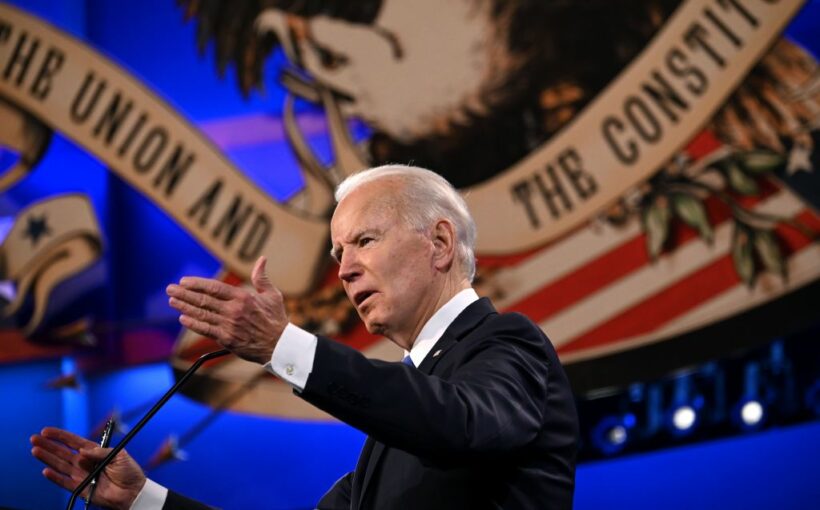President-elect Joe Biden envisions reconnecting with the international community and restoring the U.S.’s historical role as a world leader to be his top foreign policy priority. This he considers essential for promoting and protecting democratic values globally. To meet this goal, he has often spoken about rebuilding traditional alliances and reengaging with partners, especially in Europe and Asia. He promises to restore America’s “moral leadership” and to host a global Summit for Democracy.
Biden says his national security team embodies his core belief that “America is strongest when it works with its allies” and that his administration will reaffirm the U.S.’s commitments to its allies. This strategic policy shift was echoed recently by Congressman Jason Crow as he spoke at a Denver Council on Foreign Relations meeting. “America first” has been seen as “America alone,” which Biden wants to bury.
Foreign leaders have warmly welcomed Biden’s signals, but to regain their confidence — after four years of erratic White House policies and being berated, coerced, threatened, and humiliated — will take time and patience.
To begin, consider NATO: Trump has repeatedly undermined the 71-year-old military alliance and threatened to quit NATO. He has expressed his anger with NATO and publicly castigated its members for not spending more on their defense. He has called it obsolete, based on his incorrect assumption that the alliance has not taken adequate action to fight terrorism. He forgets that NATO’s allies have lost more than 1,000 lives in supporting the United States conflict in Afghanistan.
The sudden decision by the Trump administration to withdraw 9,500 U.S. troops from Germany sent another warning and a shockwave to NATO and exacerbated the ongoing tensions between the U.S. and its closest European allies. The traditional relationship of trust and mutual respect has been fractured.
Early on, Trump challenged Article 5 of the NATO treaty, under which members are obligated to come to one another’s defense. At NATO’s 70th anniversary meeting in London last year, he said French President Emanuel Macron’s comments about NATO were “very insulting,” and called Canadian Prime Minister Justin Trudeau “two-faced.” He has been equally critical of Chancellor Angela Merkel, who never warmed to him as the leader of the free world.
Biden has described the NATO alliance as highly valuable for American security, but his notion of building the relationship on shared values is idealistic, and it is essential that there be shared common interests, as well. European partners are aware of the impact of Trump’s huge following, a dysfunctional Congress, and that Biden’s first 100 days will be occupied at home with the raging coronavirus and shattered U.S. economy. Foreign policy issues, including NATO’s revival, will thus take the back seat.
Among U.S. allies and partners in Asia, the feeling is that the U.S. pivot to Asia will not be reversed and not much will change, notwithstanding the Biden team’s signal that the U.S. may be a bit more conciliatory towards China than Trump. Challenges with China on trade and high-technology issues will not be easily resolved, and hence there is a rough road ahead.
A recent initiative, an informal coalition consisting of the U.S., India, Japan, and Australia, commonly called the “Quad,” will continue. It is certainly aimed at countering China’s hegemonic designs in the Indo-Pacific region, even if China is not mentioned. India will continue as a partner, which Washington sees as a counterweight to China.
Biden will enhance the India-U.S. security relationship, which is too valuable to reverse, and the “two-plus-two” dialogue between the secretaries of state and defense from both nations, which met for the third time in late October, will likely be an annual event. Japan and Korea relations need improvement and the Biden team has indicated it will happen.
Biden’s foreign policy will have no dearth of challenges, including in the Middle East, Afghanistan, and relations with China and Russia, especially after the recent disclosures about cyberattacks and election interference. However, a foreign policy reset is in the offing and will be most welcome.
Ved Nanda is a distinguished professor and director of the Ved Nanda Center for International Law at the University of Denver Sturm College of Law. His column appears the last Sunday of each month and he welcomes comments at [email protected].
To send a letter to the editor about this article, submit online or check out our guidelines for how to submit by email or mail.
To send a letter to the editor about this article, submit online or check out our guidelines for how to submit by email or mail.
Source: Read Full Article
